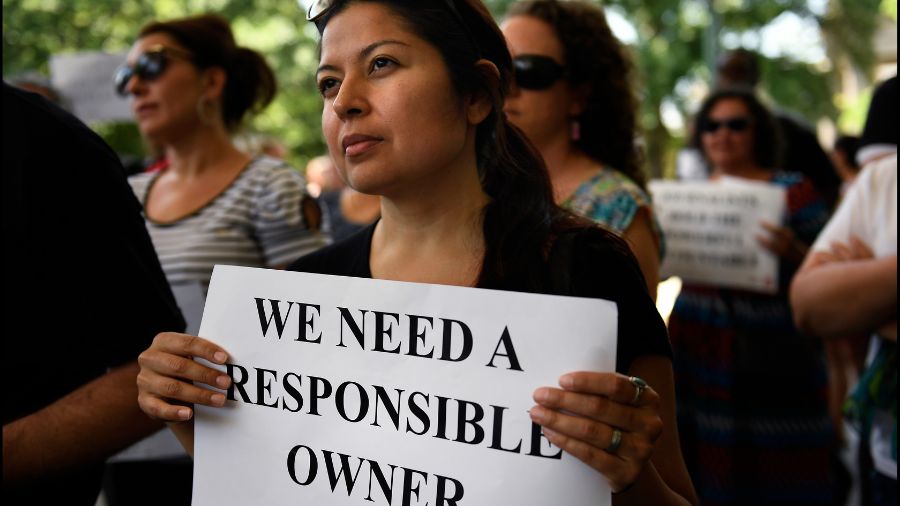WSDOT crews in constant tug-of-war with Seattle’s homeless
Jun 23, 2016, 2:14 PM | Updated: Jun 24, 2016, 8:39 am

A state worker pulls garbage out of a wooded area off I-5 Wednesday. (Hunter Jordanger)
(Hunter Jordanger)
As the homeless crisis around Seattle continues unabated, we’re hearing more and more frustration from those on the front lines.
Driving along I-5 you can’t miss all the tents, makeshift homeless camps and ever growing garbage piles strewn about the medians and embankments. But it’s not until you get up close that you realize the depth of the problem.
Related: Trooper attacked as Seattle’s homeless problem spills onto I-5
“We’ll take out … a couple of tons of trash on average over a days’ time,” said Jim McBride, Washington State Department of Transportation Maintenance Superintendent.
His crew’s assignment on Wednesday was to clean up one of those homeless encampments just off the on-ramp at 50th in the University District.
The sights and smells were overwhelming. It’s like going to the garbage dump. Syringes and hypodermic needles were strewn about, cans and bottles, dirty clothes, blankets, books, all permeated by the overwhelming stench of urine and rot. And they’re increasingly digging into the hillsides, creating makeshift bunkers under virtually every tree.
“Under the bridges, we’ve run into big problems where they’ve actually tunneled back under the roadway. In a couple of instances they’ve created cave-ins that we had to go in and shut the roadway down to repave it,” McBride said.
Even worse, McBride says the homeless are increasingly breaking drains that flow directly into the Sound, using them as toilets and garbage dumps.
“So, of course, we’re dealing with needles (that also get dumped in the drains) and when they get plugged up, our guys have to stick their hands in to get the drains reopened.”
It’s certainly not what McBride signed up for 35 years ago. Several times a week he’s out at one of these sites.
“It’s eating a big hole into what we can do,” he said “And it’s not just the clean-ups, it’s the other activities associated with them. There’s repairing fences, installing fences, putting up metal barriers when the fences continue to get cut, trying to keep people safe and off of the freeway … that’s a lot of time and money.”
And whenever crews are dealing with homeless cleanup, they’re not doing their primary job: maintaining our roads and bridges.
“We’re deferring the stuff that really should be getting done just as normal maintenance,” McBride said. “It should be normal but it’s not because all these other pressures.”
If the work is taking a toll on budgets, McBride says it’s just as bad on the workers, many of whom quit.
“This gets to be something they just don’t want to do,” he said. “You’re dealing with a constant exposure to human waste and needles and piles of garbage. It adds up and having to go out and pick that up- only to see the problem return when you get in your car and go home … in most instances they (the homeless) are back in the area before my guys get in the cars to go home.”
Related: As the ‘Jungle’ spreads, where is Gov. Inslee?
Even worse, the workers are often accosted by the homeless.
“A year-and-a-half or two years ago, one of my guys escaped serious injury when he was stabbed by one of these people,” McBride explained. “We’ve had people thrown off their mowers, we’ve had people challenged as they do their job. They’re cutting trees or brush at an intersection and three or four guys come up, get in their face, and yell ‘Get out of here!’”
It’s bad enough that cops now accompany the crews on every cleanup. Some citizens have turned on them as well. They accost the crews, demanding they clean up the mess, but leave the homeless who create it alone.
But as long as leaders allow the homeless to illegally camp on state lands with impunity, the problem will continue to grow. And those on the front lines, like McBride, are left shaking their heads in frustration playing a constant game of whack-a-mole.
“If you look at how we’re dealing with the situation, we’re not dealing with it,” McBride said. “Because you called today, we’ll tell the homeless to take what they want and we’ll go in and pick up all the garbage. Some of those people will just relocate to the other side of the freeway or they’ll go into Seattle (Department of Transportation’s) jurisdiction and then next week someone will call about that location.”
And on and on it goes. McBride figures the people his crew spent hours cleaning up after on Wednesday will be back making a new mess in a matter of days.




















